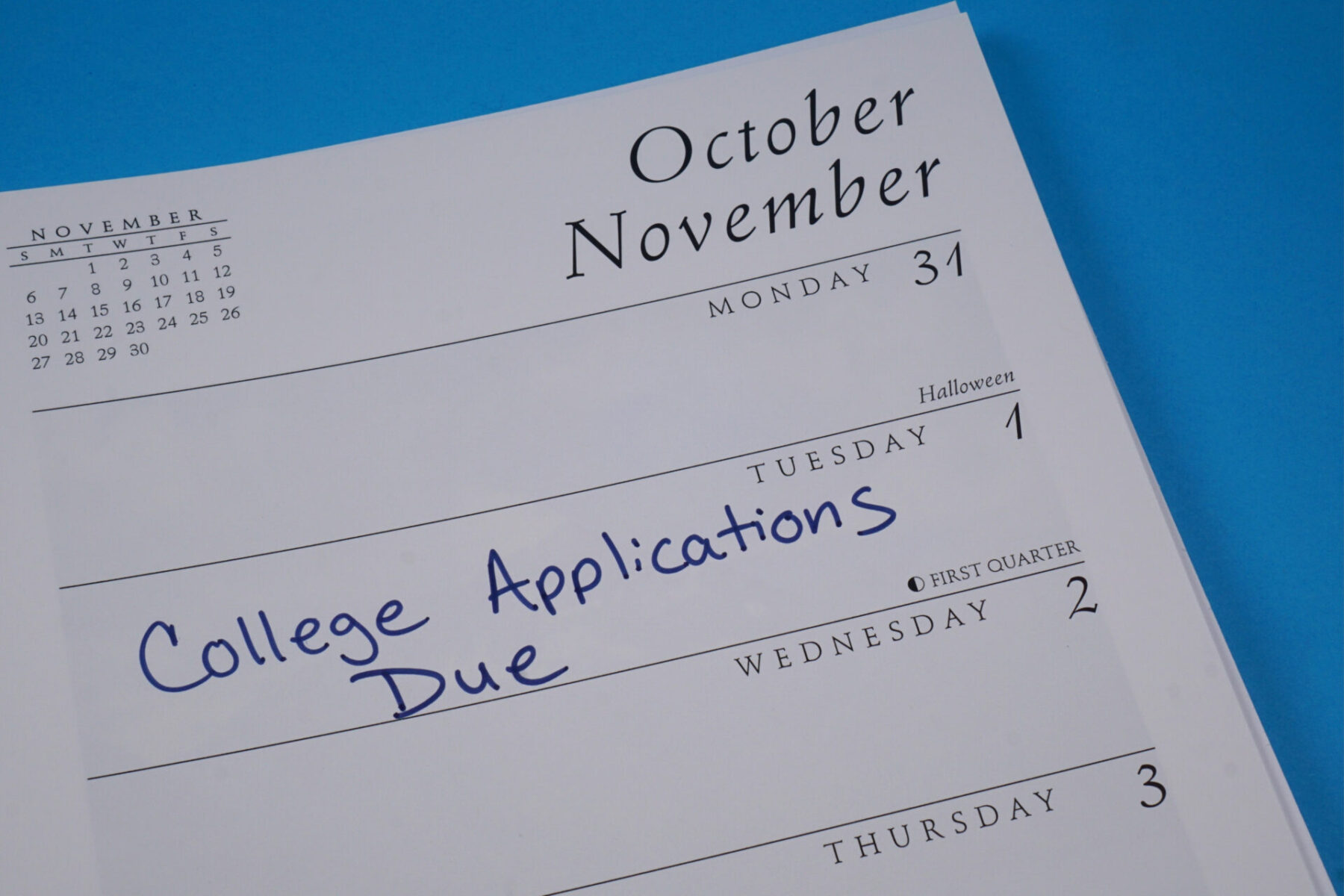BY: KAREN KERR
Beat the Clock—or Miss the Chance: Is Early Action Right for You?
You’re talented. You’ve put in the hours. You’re dreaming of a music school that “gets you”—and now it’s time to face one of the most stressful decisions in the application process: when to apply.
In the ultra-competitive world of music college admissions, timing can be everything. Some students hope that applying early will give them a leg up in the process, increasing their odds of acceptance. But does Early Action (or Early Decision) really make a difference for music programs—and should you go for it?
Before you rush to hit “Submit,” you need to understand how early admissions work in the world of music schools—and whether it will truly help you stand out, or simply add unnecessary pressure to an already complex application process.
Let’s break it all down—so you can make the best call for your future.

Early Action Application Programs and Are They Worth It?
Can you apply early to music school? Or, more importantly, should you apply early to music school? This is just one decision you must make as you approach the college application process. Although not as common for music programs, some offer Early Action and Early Decision options for freshmen music applicants.
Check each school’s website for early program options, policies, and the specific deadlines. Ensure you understand the differences and the implications of applying early. In some cases, especially Early Decision, it can increase your chances of admission if you’re a competitive applicant. However, in most cases, Early Action doesn’t have as high an admission rate, but it can provide you with valuable experience by going through an audition early in the process. This could help better prepare you for later auditions at your Regular Decision schools.
Early Action vs Early Decision: The Differences in Early Programs
One of the first steps in this decision process is to know the difference between Early Action (EA), Early Decision (ED), and Regular Decision (RD). Beyond that, there are even subcategories for EA and ED, such as Single-Choice Early Action (SCEA), Restrictive Early Action (REA), and EDI and EDII.
What is Early Action?
Early Action (EA) is a non-binding program that usually has a submission deadline in November (November 1 and November 15 are very common deadlines for EA). Schools typically release decisions in December or January. This may be a great option if you are prepared to submit by the earlier deadline, but are unsure if you are fully committed to a school. Unlike Early Decision, Early Action is not binding, meaning you are not obligated to attend if accepted by the school, and you have until May 1 to decide if you’ll attend.
What is Early Decision?
Early Decision (ED) is a binding program that means, if offered admission, you will attend. You can only apply ED to one school, so it’s important to carefully choose a school you’re fully committed to should you be accepted. Once offered admission, ED applicants must withdraw all other applications, cancel auditions, and commit to the ED school. If a student has a dream school, this could be a valuable tool. Getting into your ED school means you can skip the rest of the college application and auditioning processes.
Other Early Admission Options
Some schools also offer Early Decision II (EDII), which has a slightly later deadline, allowing for more time to prepare while still taking advantage of the Early Decision process. Restrictive Early Action (REA) and Single Choice Early Action (SCEA) are far less common and typically only available as options at highly competitive private schools, such as the Ivy League schools. REA and SCEA combine aspects of both ED and EA, which leads to policies that fall somewhere in the middle as far as restrictiveness. Music applicants won’t likely encounter these.
Programs for Early Admission Also Mean Early Deadlines! Are You Ready?
Early application programs mean earlier deadlines. This could be important because it means you must be ready to submit applications, write essays, record prescreen videos, and create portfolios on a tight timeline.
Timing of the Audition
Applying for a music program/major has supplemental components, like an audition, and often, music schools don’t offer options for early programs because it can be challenging to complete the requirements on such a tight timeline. Music schools that do offer early options will typically have an early audition day as well. This date may be as early as November or December. As you’re deciding to apply early, keep in mind that you’ll need to be prepared to audition early and submit all required applications and supplemental materials early, too.
Reasons to Choose Early Admission
One reason to apply early is that it shows your commitment to that school, especially in the case of Early Decision. In some cases, it could increase your chances of admission – if you are a highly qualified applicant. One of the most significant advantages of applying early is that you get through the application and audition process early and get a decision much sooner, so you can finalize your plans well before other applicants.
Pros and Cons of Early Action vs Early Decision
There are pros and cons to each of these options. Early Action can benefit both students and schools. The advantages for schools are significant for early admissions programs. Schools recognize that students who apply early are more likely to commit, and by strategically admitting students early, they can shape and secure their desired entering class. They know the sooner they get their offer in your hands, the more likely you are to commit, sometimes not even waiting for other offers. Early is beneficial for some students, but not all, so let’s look at the pros and cons.
Pros for Students
- Applying early is a great option if you have a clear school preference.
- Receiving your admissions decision early in the process can relieve stress.
- Applying early demonstrates a strong interest in the school and showcases your commitment.
- Some early options mean higher acceptance rates for qualified applicants.
- Some schools may offer a financial aid package during early admission.
Cons for Students
- The early applicant pool is usually more competitive.
- Applying early is not a good option if your grades are not where they should be or if you need to retake standardized tests.
- Applying early may put extra pressure on the student to be prepared with stellar application materials and audition earlier.
- Some schools may not release music-specific scholarships at the time of early admission. You may have to wait until they hear all the auditions and determine their scholarship offers.
- Music schools are more selective during early admission than general admissions to other programs.
- Receiving early admissions can lead students to narrowly focus on a school instead of exploring all their music school options.
- Applying Early Decision is binding. If a student realizes they like another school better, they have limited options to change their ED status.
Navigate Early Admissions with One-on-One Consulting
Ultimately, only you and your family can decide if applying early to music school is the right decision. You must examine your readiness and willingness to commit to submitting outstanding application and supplemental materials and prepare a killer audition.
With so many factors to consider, it can help to have someone guide you through the process. The admissions consultants at Inside Music Schools can help you weigh the options and make decisions based on concrete information about your preparedness. Through our work together, we’ll assess your musicianship skills and readiness, removing the stress and making your admissions journey as smooth as possible!
Early Admissions FAQ
What’s the difference between Early Action and Early Decision for music schools?
Early Action is non-binding and allows you to apply early without committing, while Early Decision is binding and requires you to attend if accepted. Both may involve earlier audition timelines at music schools.
Does applying Early Decision increase my chances of getting into a music school?
In many cases, yes — applying Early Decision can show commitment and slightly boost your odds. However, this varies by school and doesn’t guarantee acceptance, especially in competitive music programs with live auditions and portfolio reviews.
Are Early Action or Early Decision applicants more qualified?
Not necessarily more qualified, but often more prepared. Students who apply Early Action or Early Decision typically have done more research, completed their materials ahead of schedule, and, in the case of music majors, may have auditioned or submitted prescreens early. This level of preparation can reflect positively on your application, but the quality of your artistic work remains the most important factor.
Can I apply Early Action or Early Decision if my music audition isn’t ready?
It depends on the school. Some require your prescreen or audition material at the time of application, while others allow separate deadlines. Planning ahead is key.
Will I get less financial aid if I apply Early Decision?
Possibly. Since Early Decision is binding, you lose the ability to compare financial aid offers from multiple schools. This is a big consideration for many families of music majors.
What if I’m not ready to commit to one music school?
Early Action may be a better option. It allows you to apply early without locking into one school, giving you more flexibility during the decision-making process.
Should I apply Early Decision to a conservatory or a university with a music program?
It depends on your goals, learning style, and where you feel is the best artistic and academic fit. A music admissions consultant can help you evaluate your options strategically.
How can I get help with music school applications and auditions?
Inside Music Schools offers personalized consulting to help students and parents navigate applications, prescreens, auditions, and more — including advice on Early Action and Early Decision strategies.

Karen Kerr
An accomplished professional with over 28 years of experience in higher education, admissions, and recruitment, Karen has always made her goal finding the best-fit school for student musicians. Most recently, she served as the Director of Admission and Recruitment at the University of Miami Frost School of Music, where she was responsible for recruitment, auditions/interviews, and admissions of all undergraduate and graduate applicants. Prior to joining the Frost School, she was part of the admissions staff at the University of Michigan School of Music, Theatre & Dance where she reviewed applications at both the undergraduate and graduate levels.
